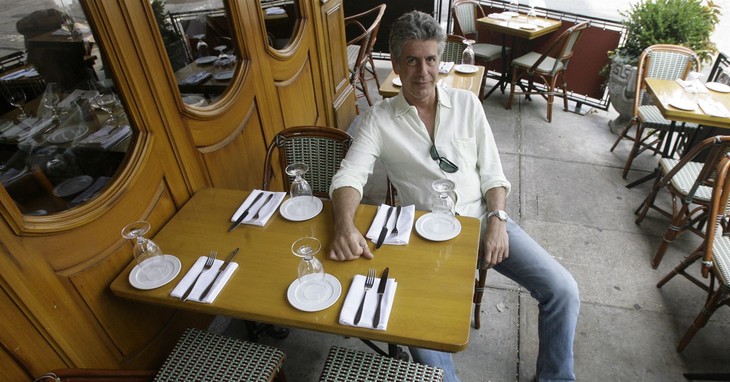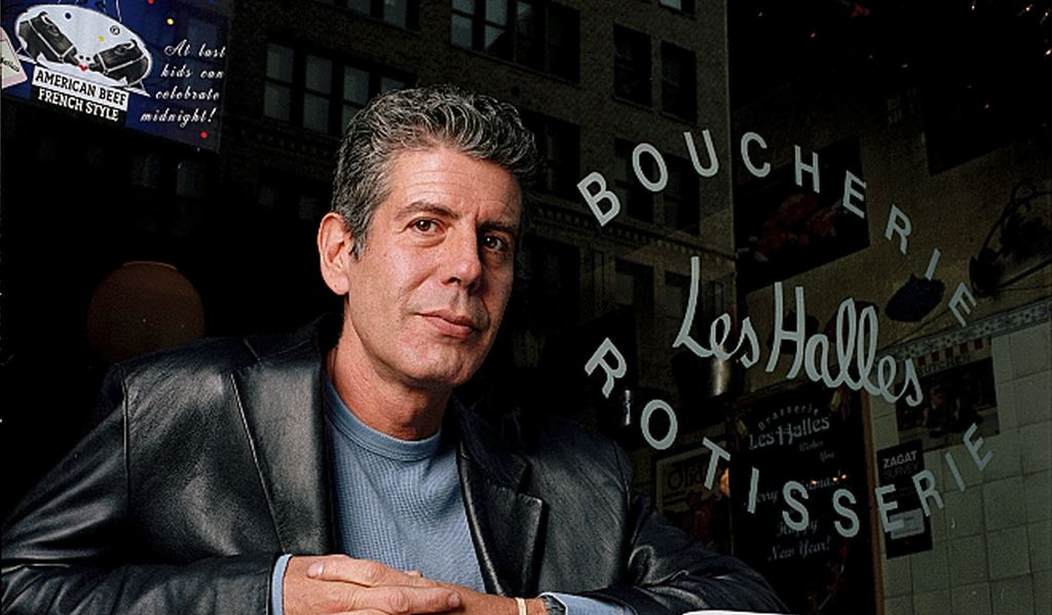The director and CNN would rather not discuss the nature of recreating Anthony Bourdain’s voice in its homage.
Among the new releases in theaters this weekend was “Roadrunner – A Film About Anthony Bourdain,” a Focus Features release that was produced by Bourdain’s last place of employment, CNN. The retrospective did rather well, drawing $1.9 million as it was showing on only 925 screens. This marks the best independent release in the pandemic-deflated marketplace this year.
Bourdain was lost three years ago, to suicide, and his celebrity is still enduring. However, there is a question about the film, one revealed in an interview conducted with director Morgan Neville for The New Yorker, published just ahead of the release. Writer Helen Rosner asked Neville about a particular segment in the film, one she found to be especially poignant.
There is a moment at the end of the film’s second act when the artist David Choe, a friend of Bourdain’s, is reading aloud an e-mail Bourdain had sent him: “Dude, this is a crazy thing to ask, but I’m curious” Choe begins reading, and then the voice fades into Bourdain’s own: “. . . and my life is sort of shit now. You are successful, and I am successful, and I’m wondering: Are you happy?”
Curious, Rosner wondered how it was that the director had been able to obtain a recording of Bourdain reading one of his own emails. It turns out, he did not have possession of such a recording — so he created one.
There were three quotes there I wanted his voice for that there were no recordings of,” Neville explained. So he got in touch with a software company, gave it about a dozen hours of recordings, and, he said, “I created an A.I. model of his voice.”
This becomes quite an eyebrow-raising revelation. Apart from this particular scene, Neville indicated there were other portions of his film where Bourdain’s voice was generated for the audio, but he would not reveal what portions those are. This now raises a number of questions about the process of making the film.
While it is not uncommon to shoot scenes and/or dialogue in documentaries to display activities, this is done in a manner in which the audience is made aware of these recreations. We understand, for instance, that a smoothly shot display of an event that had not been recorded prior is being staged and executed with actors. When Morgan Freeman is reading aloud the letters of Confederate soldiers in the Ken Burns documentary “The Civil War,” it is made obvious we are not hearing the actual voices. Here a director has created Bourdain’s voice to generate new content, and he is being coy as to where these occurrences take place. Had Rosner not inquired about that particular scene, it is possible this method would have never been revealed.
This is a problematic issue, because you have elements within a documentary being presented as genuine, and the audience is not being clued in about when it is taking place. This is the fabrication of what is sold as truthful content, and Neville is rather cavalier about the methods he used. “You probably don’t know what the other lines are that were spoken by the A.I., and you’re not going to know,” the director told The New Yorker. “We can have a documentary-ethics panel about it later.”

That CNN is behind this is hardly surprising, but that this was allowed to transpire, especially in this age where CNN is perpetually barking about misinformation, Fox News accused of false narratives, “The Big Lie,” and so on, is rather galling. Here they are presenting a documentary with content generated by the production, and the audience is not being let in on the subterfuge. It runs contrary to everything about fake news that CNN is constantly barking about on the air.
And it gets worse. According to Neville, in an interview with GQ Magazine, he states that Bourdain’s estate signed off on this process.
“I checked, you know, with his widow and his literary executor, just to make sure people were cool with that. And they were like, Tony would have been cool with that. I wasn’t putting words into his mouth. I was just trying to make them come alive.”
Except, this has become a topic in dispute. Ottavia Bourdain, Anthony’s widow, says that she did not, in fact, approve of this use of his vocal archives to recreate the man speaking lines he did not actually utter on record.
I certainly was NOT the one who said Tony would have been cool with that. https://t.co/CypDvc1sBP
— Ottavia (@OttaviaBourdain) July 16, 2021
This means that not only has the director crossed lines of credulity with his documentary he also has stepped on the toes of Bourdain’s family as he lurched across. What makes this entire process problematic — and also, just fitting for CNN — is that it completely undermines what has been regarded as a favorable film, and it calls into question the accuracy of the content therein. It also was not entirely necessary, or it could have been remedied with some better communication with the family, and a more forthright presentation with the audience.
That the director and CNN have been rather unconcerned with the ethics behind this decision shows how this is actually on-brand for the news outlet.













Join the conversation as a VIP Member